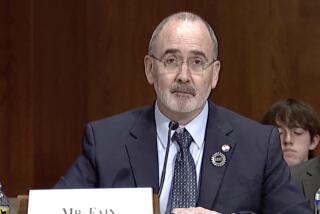It still should be a full-time job
A brief email to Assembly aides from the speaker’s office inadvertently made a strong case for demoting the California Legislature to part-time status.
It was sent last Monday and referred to that afternoon’s Assembly meeting in the house chamber:
“Everyone made it on time to the 14-minute Session. Yay! Thank you all very much. That made everything so much easier today.”
A 14-minute shift to start the workweek? For a “full-time” outfit?
The Assembly and Senate usually meet twice a week in floor session, on Mondays and Thursdays.
There is one exception that is hard to grasp for normal people. But bear with me. In addition to their $95,000 full-time pay, legislators are entitled to $142 in tax-free per diem seven days a week. To continuously draw that expense money, however, they cannot be out of session for more than three consecutive days.
So when there’s a Monday holiday, such as Presidents Day, the lawmakers meet briefly on Friday in order to keep collecting through the weekend until they convene again on Tuesday. Even if it’s only for 14 minutes.
These people are just too easy to pick on. They really should stop leading with their chins. But they’ve known that for years and can’t seem to help themselves.
Robin Swanson, communications director for Assembly Speaker John A. Pérez (D-Los Angeles), pointed out that “a lot of things happen that don’t show up in floor sessions. Much more goes on than meets the eye.”
That’s true. A lot of committee meetings, mainly. But on this particular Monday, no Assembly committees were scheduled to meet.
“People were working on their legislative packages,” Swanson continued, noting that Feb. 24 is the deadline for introducing bills this year.
That is, until legislators start playing their “gut and amend” tricks in late summer as they frantically race toward final adjournment, further tainting their images.
Again, maybe this is a cheap shot. But it’s legislators themselves who are holding up the irresistible target. And inviting this: “The system’s completely broken. We work on a part-time basis. Why not be paid on a part-time basis?”
That’s the view of a renegade freshman assemblywoman, Shannon Grove (R-Bakersfield), who’s pushing a ballot initiative to downgrade the Legislature to part time.
“What have we done in the last six weeks? Prayers. Adjourn in memories [of deceased]. Some people came [to visit] from Ukraine.”
It’s not that bad. The Legislature appropriated money to keep school buses running. Budget committees have been digging into Gov. Jerry Brown’s spending proposal. Recently, up against a deadline, each chamber moved scores of bills to the other house.
“They’re wasting a lot of taxpayers’ money,” insists Grove, 46, a Kern County native and businesswoman.
The Legislature’s budget is $256 million.
Understandably, legislative colleagues aren’t flocking to Grove’s side.
“She’s all alone right now,” says Ted Costa, who heads a group called Peoples’ Advocate and is coordinating the effort to collect the 808,000 voter signatures necessary to qualify the initiative for the November ballot.
The drive for a “citizen legislature” has raised roughly $250,000, Grove says. But to get on the ballot, it could need 10 times that much to pay signature collectors.
Opponents are watching warily. Costa used to be dismissed as a small-time gadfly by many politicos — until nine years ago when he initiated the recall of Gov. Gray Davis.
“I’m always concerned if Costa is involved,” says former Democratic assemblyman and Davis aide Mario Frommer. He and another ex-Davis staffer, consultant Steve Maviglio, are “keeping an eye out,” Frommer says.
California is one of 10 large states with a full-time legislature.
Ours went full-time in 1966 on a 3 to 1 vote of the electorate.
Legendary Speaker Jesse Unruh led the fight, arguing that the legislative branch should be upgraded to the same professional level as the executive. It was the right thing to do for a fast-growing state. It allowed the lawmakers to develop their own research and policy proposals separate from the governor and lobbyists.
Basically, the Legislature now meets eight to nine months a year. It can hold committee hearings in the off months, and should hold more.
The Grove-Costa proposal would be a drastic whacking.
Regular legislative sessions would be limited to 90 days — during the months of January, May and June. A governor could call special sessions, but only for 15 days. Pay would be reduced to $18,000 per year.
The idea reflects a Norman Rockwell fantasy, a nostalgic longing for an era that hasn’t existed in California for at least a half-century. Legislators theoretically would return home to their jobs for most of the year, mingling with townsfolk and gaining common sense.
Wonder which special interests would be hiring them? Or sending business their way in return for favors back in Sacramento?
I’m pretty sure of this: Weakening the Legislature would shift more power to the governor, the bureaucracy and the capital’s 1,200 lobbyists.
Two major political reforms are about to kick in: open primaries and non-gerrymandered legislative districts. They could well result in the election of a few more centrist problem-solvers.
Former Republican legislative leader Jim Brulte, now a Sacramento consultant, says: “There may be a case for a part-time Legislature but, if so, it’s a case that should be made in a few years.
“First we ought to give the reforms that voters already have passed a chance to work.”
And not be fooled by folklore.
Legislators, meanwhile, really should meet for at least an hour in floor sessions. Surely there’s enough public business hanging to fill the time.
More to Read
Start your day right
Sign up for Essential California for news, features and recommendations from the L.A. Times and beyond in your inbox six days a week.
You may occasionally receive promotional content from the Los Angeles Times.







